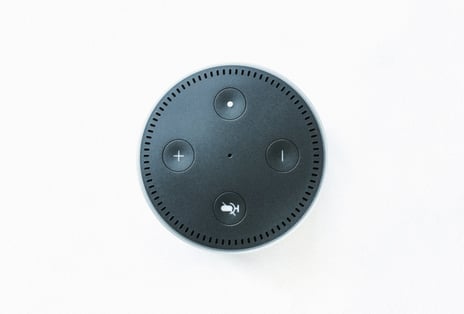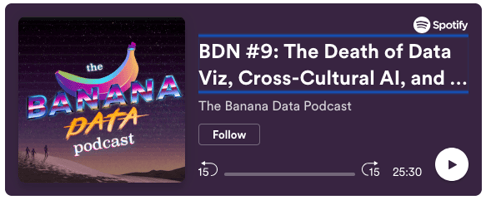With summer officially over and fall setting in, the back-to-school excitement abounds. I sat down with Josh Hewitt, Director of Academics at Dataiku, and Diane Igoche, Curriculum Development Specialist at Dataiku, to understand how education and educators are adapting to the data and AI revolution.
This interview felt particularly relevant in the wake of the release of the trailer for the latest documentary to crack open the world of AI and data scientists. Data Science Pioneers - Conquering the Next Frontier is coming this fall, and universities or students can get an exclusive first peek at the film by signing up to host a screening.
What is changing about data education today?
Josh Hewitt (JH): What I’m seeing take place in academics in general is that they’re playing a bit of catchup. The industry of data science, machine learning, and AI is quickly evolving with new products, new features - things are moving at a lighting pace. So academics are just now starting to ensure their students are equipped with the basics in these fields not only to secure a job, but to do well in that job.
On top of that, there are a lot of questions and conversations right now about ethical use of data science and AI. I see that as a real opportunity for academic programs to take those concepts (of bias, of public vs. private data, of how we’re using that data) and get students thinking about those things early. How can we change the world with data, but for the better?
Another thing that’s a bit different is that students are entering data science programs (whether at the undergraduate or graduate level) with a lot more general knowledge of machine learning than ever before since it’s been a part of their world since they've been growing up. They may not have called it data science, but they have been living and breathing these things and the outcomes of what companies have been doing longer than we ever have, so they are also coming in with a different perspective.
 Today's students, born in the digital age, have been living and breathing data their whole lives.
Today's students, born in the digital age, have been living and breathing data their whole lives.
Diane Igoche (DI): Yes, I agree with all of that. And to add, I’d say that now it’s faculty members who have to step up. The students in the class know what’s going on - they come in already talking about tools, whether that’s open source or platforms like Dataiku. And faculty members have to stay abreast of these different tools, because it’s a different space. Plus, every industry right now taps into machine learning and data science, so it’s an interesting time.
Best advice for faculty or students going into the 2019-2020 school year?
DI: One of the key things I recommend for faculty is to belong to a community of like-minded people. With all the things faculty members have to do, it’s very difficult to stay on top of all that’s going on.
For example, Dataiku is building a community of learners, and that’s something great that academics are tapping into. But it doesn’t have to be high-effort either: listen to webinars, listen to podcasts (like the Banana Data Podcast!).
On the other side, I tell students to take advantage of social media. Access to some of the greats has now shrunk - you can go online and chat with Google’s Jeff Dean. You can talk with Florian [Douetteau, Dataiku’s CEO]. Students should shed this fear that they have of being able to talk to people. Find out what’s going on and chat with the scholars, researchers, and leaders in this field.
JH: Use Dataiku in the classroom! Kidding aside, what Diane said is right. Obviously our ultimate mission is to get students and faculty using Dataiku, but it’s actually so much more than that. It’s about offering connection to communities, and that will only enhance program offerings for faculty and students.
What are some of the most relevant topics related to data in the classroom today?
DI: Ethics and bias in datasets and in data science. Bias is touching just about every human group, so it’s a huge, huge topic in the classroom in AI. We’re also going to be talking a lot in the coming years about security of data, which is important but always overlooked. There are so many hot topics right now, but bias is a huge one.
Why is Dataiku a good fit for the classroom?
DI: Dataiku is great for the classroom because the tool by itself works for everyone, from the business classroom to the computer science classroom to the student that has extensive programming knowledge already.
They can use AutoML features to learn about model selection and model building. The more experienced programmer can play around more on the back end and use his or her language of choice. In other words, it works for all different types of learners. And that includes faculty members, who can hop on and get up and running quickly to start using it in the classroom.
JH: Also because Dataiku is on the cusp of what’s happening. We’re always trying to stay ahead of the curve, so faculty and students know they are getting the latest and greatest
How does Dataiku prep students for the real world?
JH: There’s really no organization out there now globally that uses just one product for everything. Some are using open source, some propriety, and what ‘s great about Dataiku is the ability to interact with all of those technologies in one platform. So students get to interact with all of that, and this is critically important in a collaborative team environment.
Today’s companies are starting to have massive data science or AI teams, and we’re giving students a taste of how that will work - how to work with others on a platform, how to communicate your ideas, how to take others’ ideas. It’s that real-word experience that’s taking place. Because we’re trying to work so closely with our customers and making sure they’re connected to these academic institutions that we partner with as well, it’s a win-win for everyone.
I think it makes sense for us as an organization to build a pipeline of talent for our customers in so many different ways. There are tons of different programs, lots of different students and areas of study, so it’s difficult for them to figure out what skills students have and what will work for them. If we can say students are certified in a particular program or in Dataiku, our corporate customers can have assurance that they’re good to hire, can be good interns, first-time employees, etc. It ensures talent out there is ready for the workforce and that we’re supplying our customers with talent.





